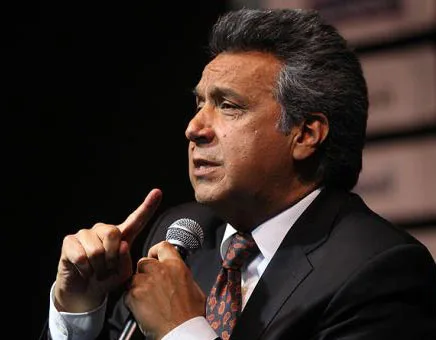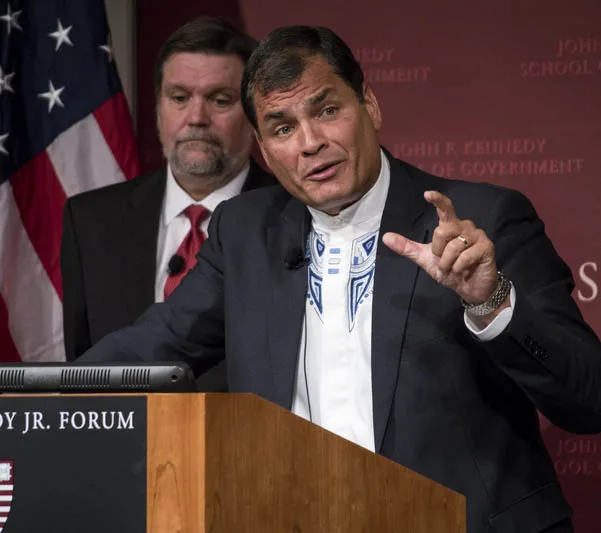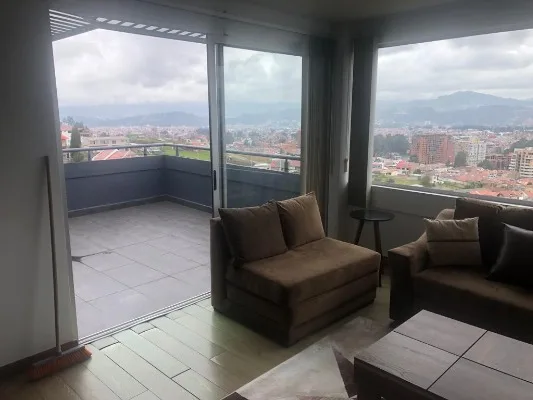Referendum is the ‘burial project’ for Correísmo
By Ramiro Crespo
After teasing the public for several weeks, president Lenin Moreno last week finally presented seven questions that will appear on a public referendum. There were some surprises.
Momentum appears behind him as the opposition, including key leaders like Guayaquil mayor Jaime Nebot (PSC) and Moreno’s rival in the
presidential elections, Guillermo Lasso (CREO) said they would vote “yes” in all cases. The questions all bear reference to current political issues, but also appear calculated to appeal to popular instincts to drum up support lest economic realities undermine the president’s current sky-high approval ratings of around 80% once the referendum takes place. It could take until late January or February, Moreno told reporters, when voters go to the polls.
The most crucial of the seven questions, unofficially translated below, is the second, asking people to reintroduce the two-term limit for elected officials. In his meeting with the press, Moreno said that the personality cult and authoritarianism of his predecessor, Rafael Correa, betrayed the early years
of the “Citizens’ Revolution,” enshrined in the Montecristi Constitution of 2008.
I strongly disagree with this interpretation of what happened in those years given the fact that Moreno served as vice president.

President Lenin Moreno
Whatever Moreno really believes, by leveraging the alleged good times against what he called the “dark age” of the end of Correa’s administratoin, he is attempting to harness the support of the left that abandoned Correa in 2010 and 2011, continuing to fight for his predecessor’s sizeable remaining group core supporters. The two-term limit existed in the charter until Correa had it changed by the National Assembly in late 2015.
The center-right will support this wholeheartedly, as will much of the left. To reintroduce the two-term limit will bar Correa from being able to run for president in 2021 or any time afterward. This could finally trigger the rupture of Alianza Pais (AP), the political movement that both Moreno and Correa represent and which, while controlling the National Assembly with a slight majority, has been stuck idling on the sidelines as the past and present presidents struggle to control as much of it as possible.
Another key issue is the replacement of top judicial and regulatory officials appointed by the “Citizens’ Participation and Social Control Council” (CPCCS), a body inspired by Venezuela that was allegedly going to depoliticize control of the courts and regulatory bodies.

Former President Rafael Correa
As critics had warned earlier, the opposite happened, and it was stuffed by AP cronies that on their part ensured correísta control of other bodies like the judiciary and electoral council. How to dismantle this without provoking opposition from the Constitutional Court (CC), also a court to date loyal to Correa, was subject to much speculation in recent weeks. Under the constitution, the CC revises referendum proposals (split in Ecuador in referendums and “citizens’ consultations,” the former being defined as such that introduce detailed legal reforms that impose a 20-day response deadline for the court).
The wording put forward by Moreno keeps the CPCCS intact, perhaps sidestepping the risk of a veto by the CC if he would have asked for its removal. To provide legitimacy, he says the body should be elected in the future. In the interim however, the current CPCCS members are to be fired and a temporary body to be hand-picked by Moreno.
For all the president’s insistence on nonintervention in the judiciary, individuals like prosecutor general Carlos Baca and attorney general Diego García are certainly on notice given the Damocles’ Sword the referendum puts on their future performance, particularly regarding the giant
corruption scandals working their way through the courts. But the discretionality of picking a temporary CPCCS has alarmed many. Confronted with the matter, Moreno told the press the people needed to
trust the president to pick “the best” for these extremely important and sensitive positions. Yet hours later, he chose a completely unacceptable woman as a temporary vice president.
The remaining questions, while relevant, look motivated above all to galvanize voters. Two concern limits on mining and oil production, hoping to capitalize on the 800,000 signatures environmentalists obtained against expanding the oil frontier in the eastern Yasuní National Park. The other ends statutes of limitation on sex offenses against minors; the Correa administration had a shocking track record of supporting these kinds of offenders, one of the darkest sides of that government.
The appeal of the referendum questions overall have pleased investors as Moreno’s ability to govern the country amid the mess inherited from Correa has strengthened and correísmo looks set to be buried. But the issue of judiciary independence may continue on its decades-long trail of tears.
The referendum questions:
1. Do you agree that the Constitution be amended to punish anyone convicted of acts of corruption by terminating their ability to participate in the political life of the country and with the loss of their property?
2. To guarantee alternation in power, do you agree to amend the Constitution so that elected officials can be re-elected once only…., leaving indefinite reelection ineffective?
3. Do you agree to amend the Constitution to restructure the Participation Council, as well as to terminate the term of its current members, and that the Council that temporarily assumes has the power to evaluate the performance of the authorities …, being able to terminate their periods early?
4. Do you agree with the repealing of the Organic Law to Prevent Speculation on Land Value and Taxation, known as the “Capital Gains Act”?
5. Do you agree to amend the Constitution of the Republic of Ecuador so that sexual offenses against children and adolescents never prescribe?
6. Do you agree to increase the intangible area to at least 50,000 hectares and reduce the area of oil exploitation authorized by the National Assembly in the Yasuní National Park from 1,030 hectares to 300 hectares?
7. Do you agree to amend the Constitution to prohibit, without exception and during all stages, metallic mining in protected areas, intangible zones and urban centers?
_________________
Ramiro Crespo is president of the editorial board of Quito-based Analytica Investments.


















